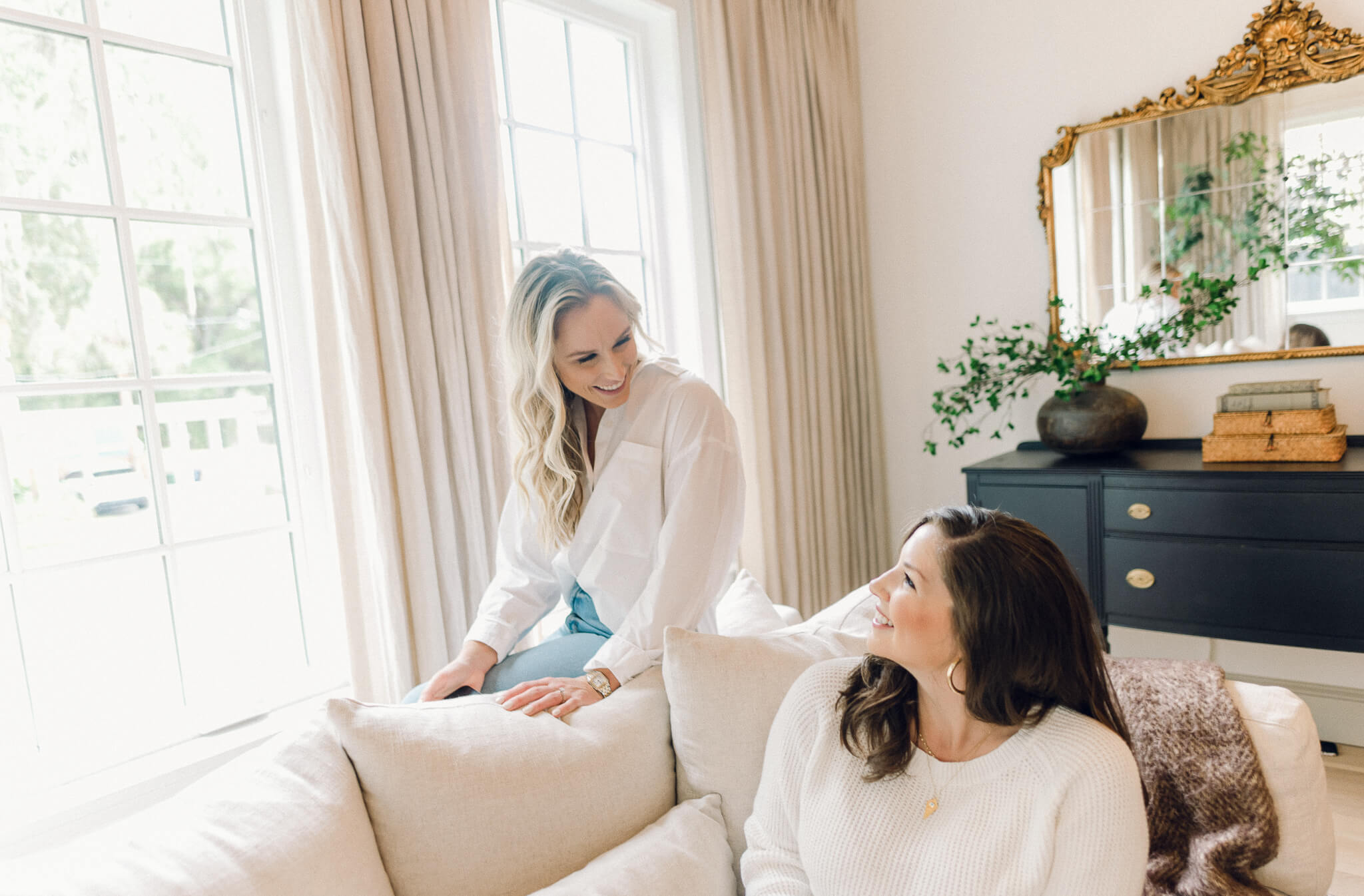When starting a travel business, one doesn’t always start with big-budget clients. For many, there is a graduation process and a slow progression into larger ticket trips and more established travel clients. On episode two of the TIQUE Talks podcast, we discuss how to take your existing business and graduate them into a higher price point, while also adjusting your marketing and sales to attract a more luxury crowd.
To get a full understanding of this episode, something to know is that Explorateur Travel was started as an itinerary creation company with a target audience of the Airbnb crowd. We offered recommendations and an electronic itinerary, but we weren’t actually making commissions. Once we transitioned to booking comprehensive itineraries, we still wanted to maintain the approachability of the previous model and increase our income potential.
With that being said, we use this episode to share the core learning lessons as we graduated our clients into our current model and desired price point.
Recognize that your income is capped at your ability to produce
As we mentioned, in the beginning, we didn’t have an IATA, a consortium, and we weren’t registered with the state- so we weren’t able to scale. We realized that the model was not going to be sustainable for us to produce a decent income, while also having a business that could continue to “work” if we stepped away for a vacation (or any other reason). The biggest lesson learned was that once you are completely reliant on your own productivity, you can’t ever scale to a point of real wealth (we apologize if that’s offensive to anyone, but the reality is anything that’s productivity based is always going to be capped at your ability to produce). The more you think about that, the more you realize that you have to put other things in place that allow you to grow and make the income that you want.
It seems that you have to expand your team if you want to make more money, yet that’s not in everyone’s wheelhouse. Instead, you have to get to a place where you’re able to charge more for the same level of effort that you’re already putting forth. That includes increasing commissions, working with partners that provide incentives, adding service fees, and creating affiliate relationships. It really helped us go from servicing as many people as possible all the time to servicing those that provided a truly mutually beneficial relationship.
In reality, travel advisors carry A LOT of liability in all the details that go into one itinerary (particularly the concierge level reservations), and the more liability you have, the more income you should be making off of that liability. With great responsibility should come great income.
Sell your value and drop the word “deal” from your vocabulary
When we finally started booking, we dove head-first into sharing deals. As it turns out, “deal” is a four-letter word in the travel industry. We would post packages on social media that we were creating through wholesaler websites, and to our credit, it DID work! We were gaining attention and started getting a lot of questions about those destinations and products. However, while we were getting clients, they were very transactional. They were single-booking relationships. We also were running into the issue that we would create these deals and then people began to price compare. Since they had no allegiance to us, nor had they even really sought out our services, they’d always opt for the more economical option- duh!
We never wanted to be a transactional service, yet, here we were just “Expedia Robin” and “Expedia Jen.” We provided no extra value that would come from a true service provider. Our process was “give us your credit card and we’ll talk to you again when we need the second payment,” and “we’ll send you some docs.” We didn’t even follow up with clients during or after their travels!
What we’re saying is we failed a lot to learn a lot, but we also shifted our verbiage to being more value-based…our favorite word is “value.” While the word “deal” automatically evokes the thought of number signs, when you say “value” it becomes incredibly personal since that is more defined by how someone prioritizes their time, their investment, and experience. We started to use language that was in sync with the audience that we actually wanted to attract. In summary, we shifted our audience, transitioned away from deals, and started talking about value-based and stylistic preferences, but we also added boundaries. And this is our favorite.
Work from a process with boundaries
We do not operate under this false pretense that you can totally get away from dealing with issues on the weekends or having a late-night phone call. We’re definitely not here to tell you that that is not going to happen at some point in your travel industry lifetime. However, you deserve boundaries as a business owner. We believe that there is a way to get out of the never-ending grind, create a business that makes you feel good, and that doesn’t just always raise your heart rate when you see an e-mail notification come through. The huge takeaway is defining your boundaries and training your clients to follow those boundaries.
Adding fees creates another boundary by creating a mutual buy-in and respect for time. What it also says is “I’m willing to invest in this experience” and the people that are willing to invest in an experience are usually willing to commit to a higher total budget.
People who see you as an advisor will respect your boundaries. You don’t expect your lawyer or your tax accountant to email you back at 5:00 PM on a Sunday during dinner, and if you do, that’s very unfortunate (#sorrynotsorry). You deserve to have boundaries and a business that does not make you want to rip your hair out all the time.
If we could tattoo something on ourselves it would be: give yourself permission to set boundaries and make more money. That’s the moral of the story of every podcast we will probably ever do.
Educate your clients instead of selling to them
The first step in our marketing was “myth busting.” It was easy to get frustrated because, no matter how many times we talked about who we were, what we did, and how we were different, there was no way that we were reaching EVERYONE in our target audience. Also, people have a very short memory, and what we have to realize is that people are actually mostly concerned with themselves- they’re not going to remember everything that you’re sharing on social media all the time. We had to share over and over and over and educate and educate and educate. Even if you feel like you’ve said it until you’re blue in the face- what you do, who you are, what your company is, keep saying it because ultimately someone doesn’t know yet (or needs to be reminded).
Once we established what a travel advisor did through that myth-busting, we were able to establish ourselves as professionals since we had gained credibility. This allowed people to look to us as a source of knowledge, instead of someone that was just looking to sell them a trip.
Invest in your business
Another thing that we did was to invest in our experience at properties. And that’s where the secret sauce is. No one can start a business without spending money. READ: We’re absolutely not saying that you should take every FAM trip. However, for those places that you know you want to specialize in, and the properties that you know you want to sell, you are going to have to do some investment on your end. Whether that’s the investment of time and speaking with a supplier and then educating your audience afterward, or it’s actually an investment to travel there and showcase it live. If you are ready to invest in your knowledge, we invite you to join our Niche community!
We hope that you loved this episode of Tique Talks, where we share candid thoughts on business and the travel industry. What was your favorite moment of the show?
Share in the comments below!






Comments +